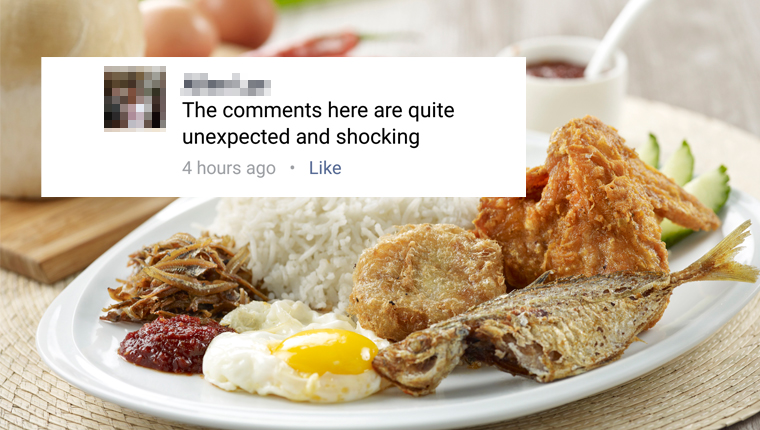It's common knowledge that we live on a planet which cannot keep up with our vast appetites. The WWF-Singapore found that Singaporeans consume an average of 22kg of seafood per person yearly, slightly higher than the global average of 20kg. Not only that, but 75% of the fish we eat in Singapore are not sustainable - meaning we are eating them faster than they can reproduce.
As a result, the WWF-Singapore recommends that we avoid consuming certain fish - such as the ikan kuning (the fried fish you eat with nasi lemak, the silver/black pomfret, all rays (including our favourite sambal stingray), all bluefin tuna, and many others.
Instead, WWF-Singapore recommends finding alternatives from well managed, sustainable fishing stock.
You can read the report here at the WWF-Singapore site.
Channel NewsAsia and The Straits Times published stories about this WWF-Singapore report on Oct 4. Not surprisingly, when a favourite national food source is threatened, Singaporeans would come out in droves to stand up against the oppressors seeking to take away their ikan in the comments section.
1. The 'Mind Your Own Business' comment:
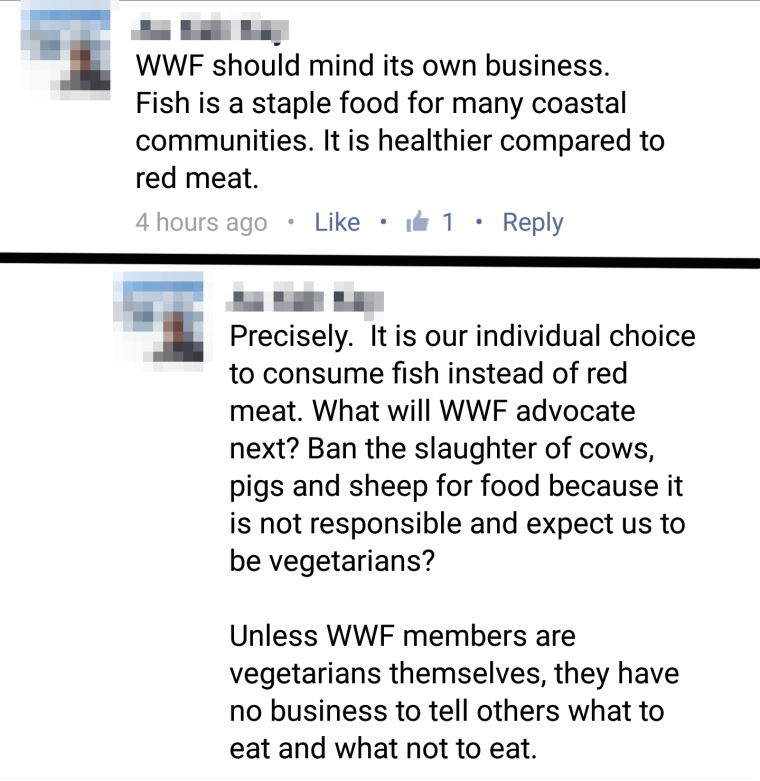

2. The "Everything Also Population" comment:
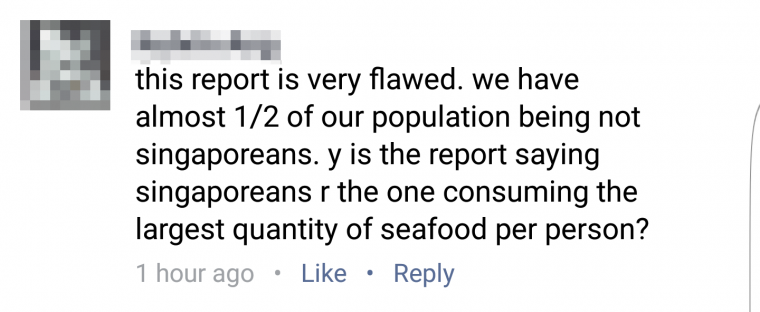


3. The "We Are Just A Tiny Red Dot" comment:
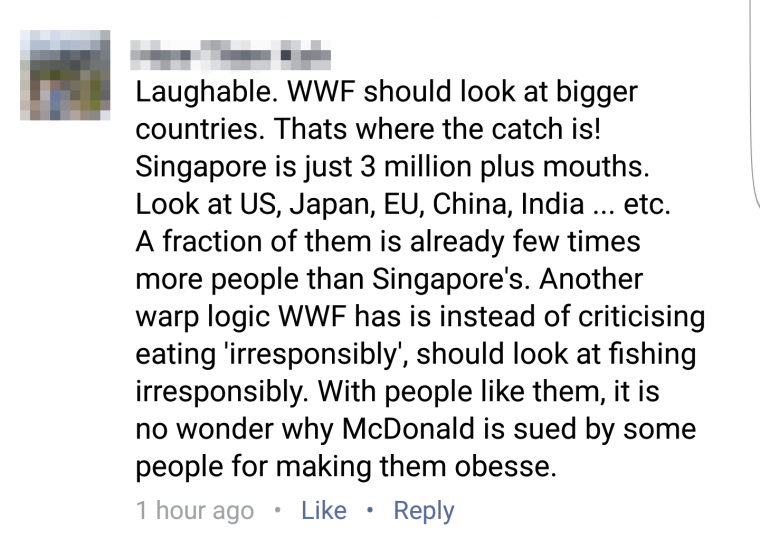

True. Singapore's population is much smaller compared to bigger countries - which means our overall fish consumption is lower. However, the point is to encourage individuals to eat sustainably.
Also, we would like to point out that this research was conducted by WWF-Singapore, for fish sustainability in Singapore. Other countries' fish consumption are irrelevant in this report.
Food sustainability in other countries is being researched by their local WWF offices. For example, you can see the seafood sustainability studies conducted by WWF-United States here.
4. The "Other People Do Worse Stuff" comment:

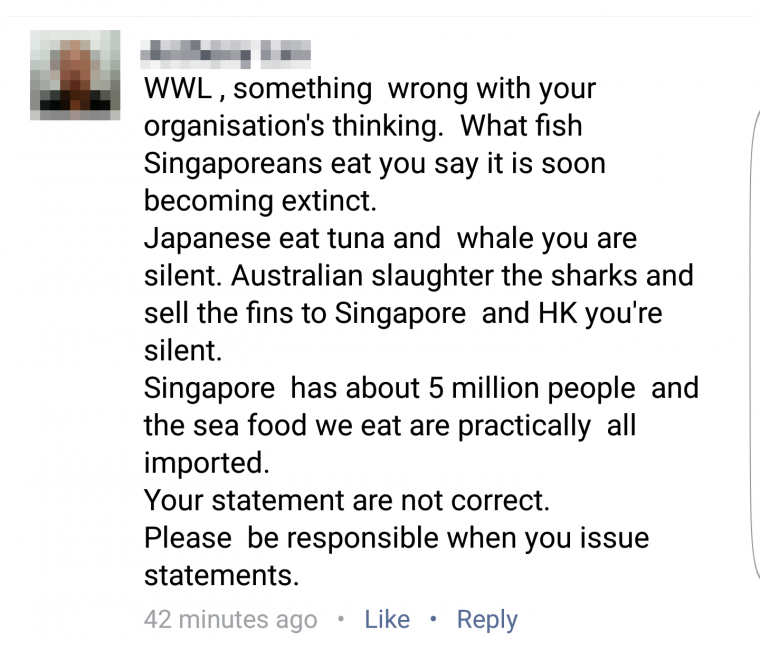

Talk to Japan about whale killing? They already did here.
Talk to Hong Kong about shark-fin consumption? They also did here.
5. Lastly, the "No Logic" comment:
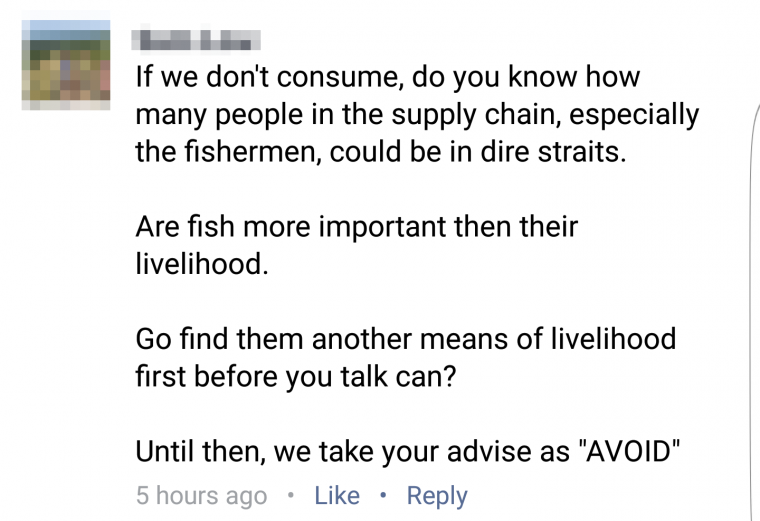

Thankfully, there were people who restored our faith in humanity by simply exercising their logic: 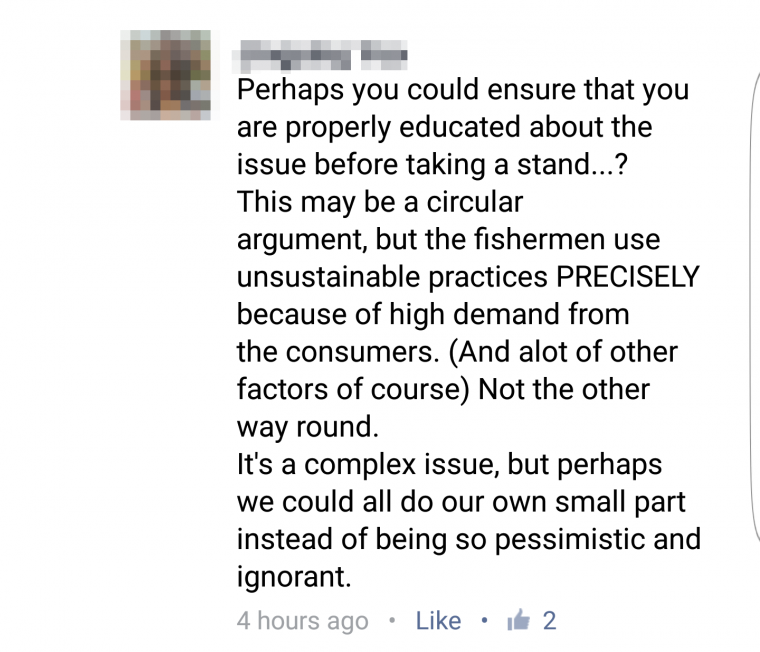
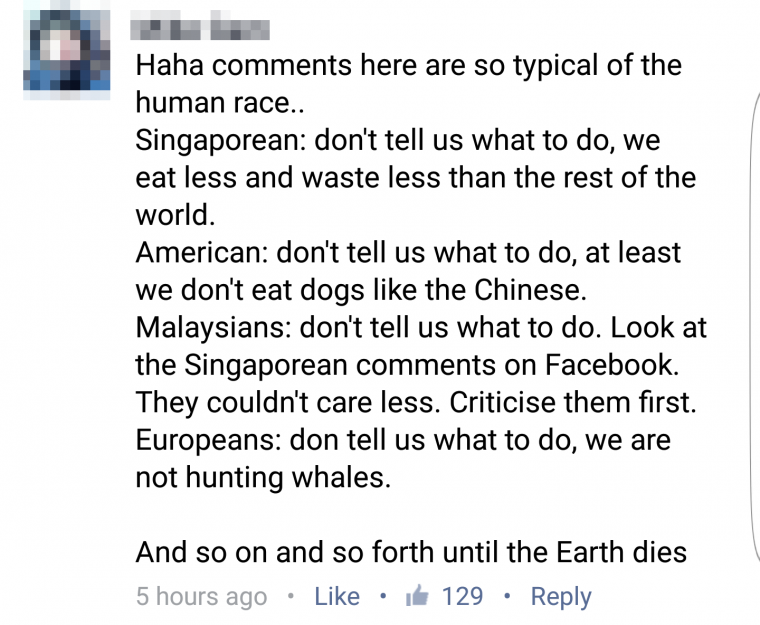
As a response to the dwindling fish stock, WWF-Singapore is working with restaurants, suppliers, and others in the seafood industry to get their fish from sustainable sources and look for alternative fish stock.
On the consumer side, WWF-Singapore encourages the use of the Singapore Seafood Guide to make informed choices about the fish we buy, and which to avoid.
Saving our home, for us and for our future starts with making individual changes to the way we eat. Do it now before it's too late. As one commenter puts it:

Top picture adapted from ActiveAge.co. All screenshots taken from Facebook.
If you like what you read, follow us on Facebook and Twitter to get the latest updates.
If you like what you read, follow us on Facebook, Instagram, Twitter and Telegram to get the latest updates.
